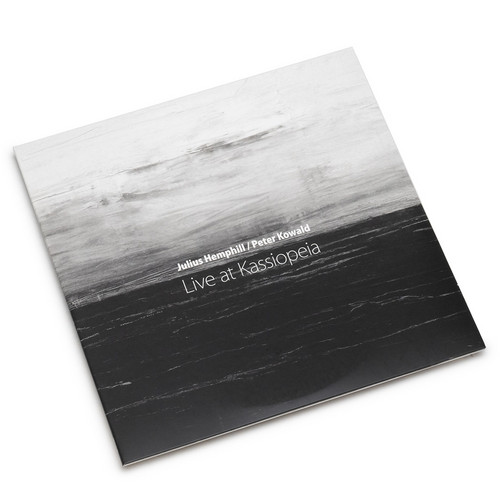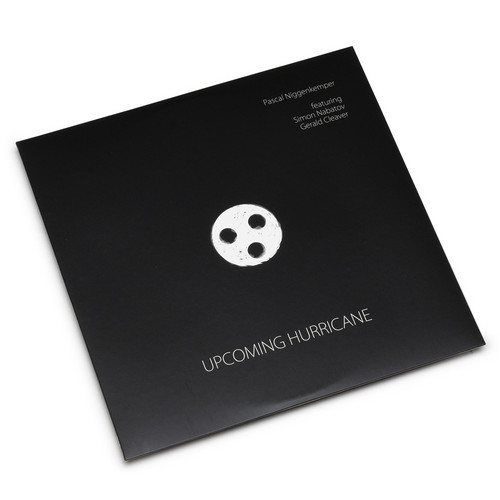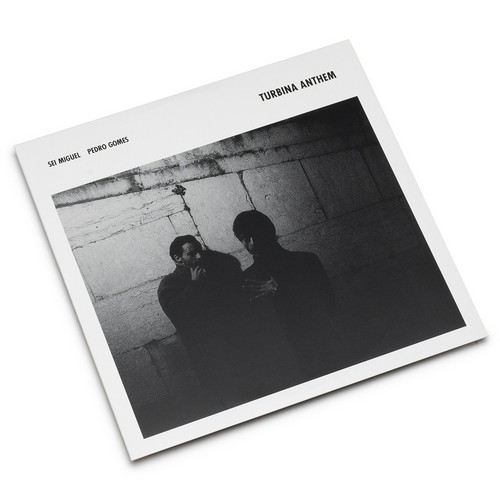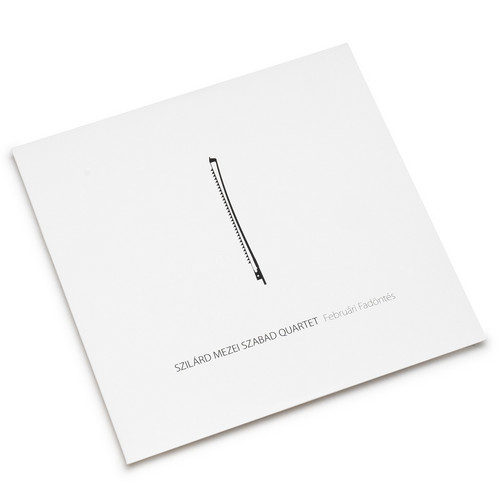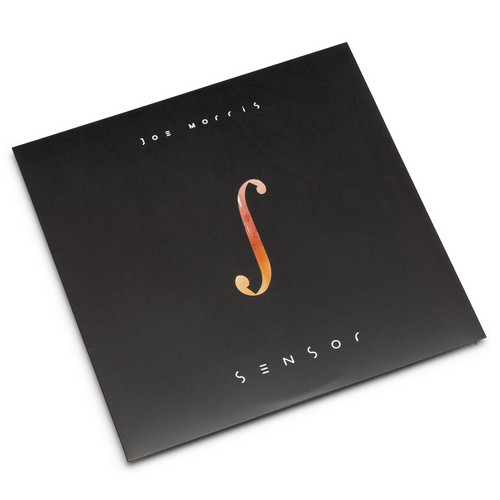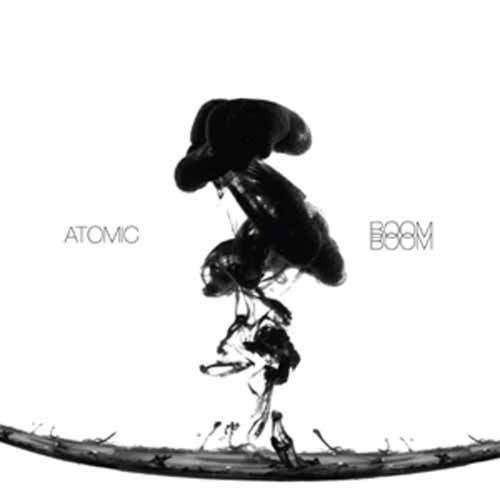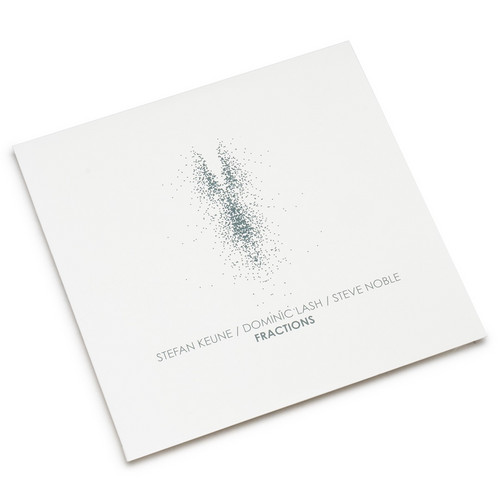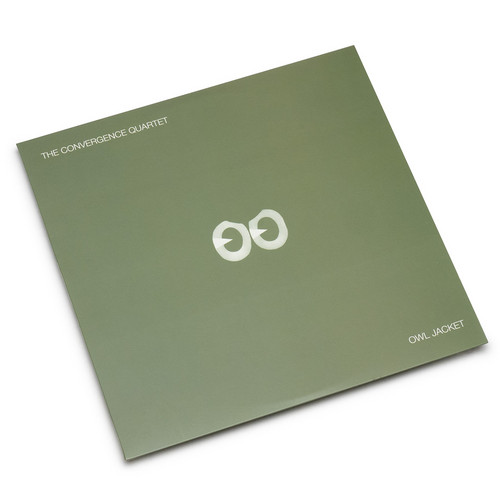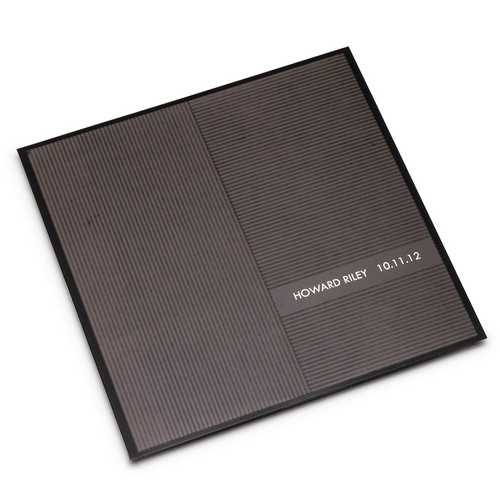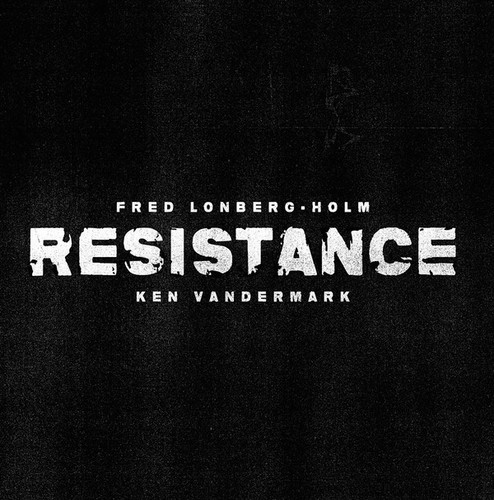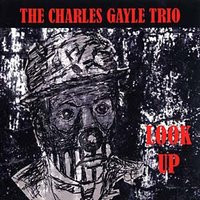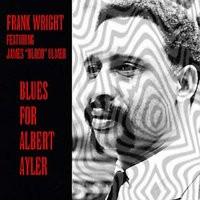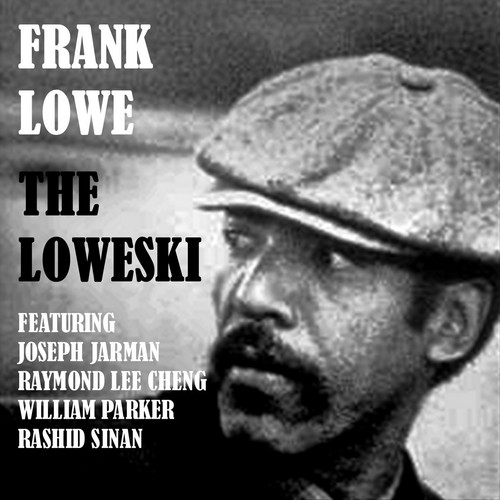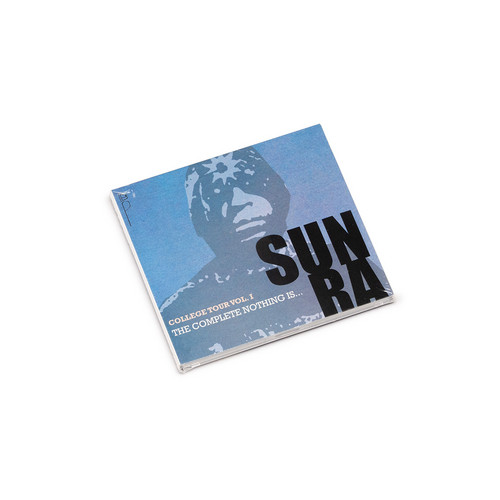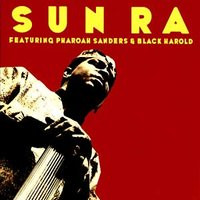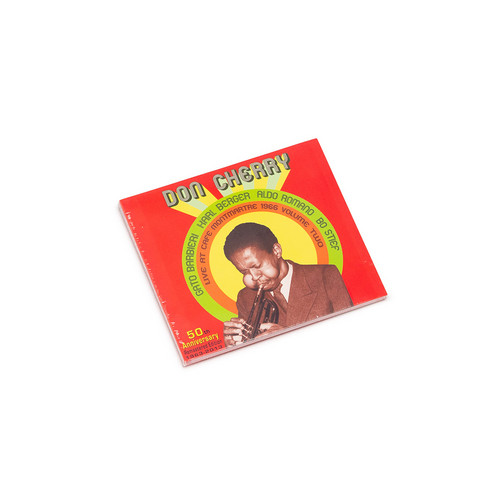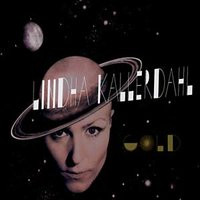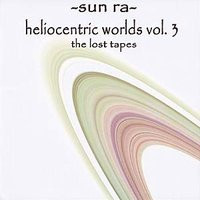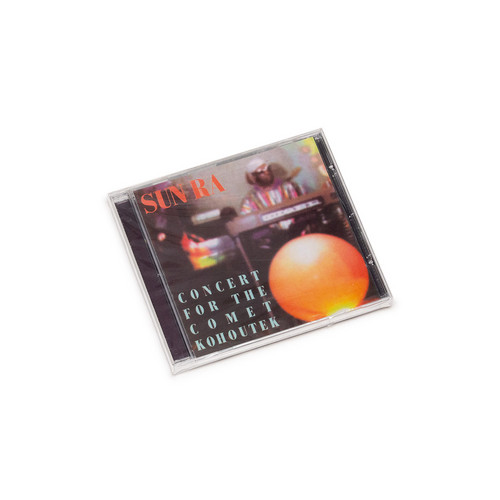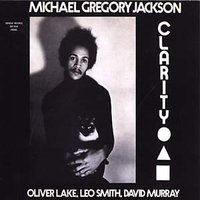Jazz /
Live At Kassiopeia
A never earlier released duo recording that was played back in 1987 at Kassiopeia, Wuppertal brings these two great musicians and composers together for this unique and unforgettable session. There are times when one fantasises about the possible collaborations that might have been: Hendrix with Miles Davis, Jeffrey Lee Pierce with R.L Burnside, Capt. Beefheart with Sun Ra ― imagination is a wonderful thing. But when a vault somewhere pops open and a collaboration of two of improvised music's ti…
Upcoming Hurricane
"I was already familiar with Pascal Niggenkemper's work as a result of the release, Klippe by Thomas Heberer, early this summer and a superb trio with Robin Verheyen and Tyshawn Sorey, PN Trio. So this was always going to be an exciting adventure to see what his new trio would put forth. And the new album, Upcoming Hurricane, pretty much says it all. This is a heavy storm of sound that comes on quietly but resonates brightly over 60+ minutes. Clean, open and improvised, Niggenkemper is a brillia…
Turbina Anthem
"It's almost a given that any new release on the Lithuanian No Business label is going to be a bit out of the ordinary. As the catalogue grows, so does its depth and breadth. Turbina Anthem vouchsafes that proposition, comprising an unusual guitar and trumpet duet by two Portuguese improvisers who deserve a wider audience. Trumpeter Sei Miguel boasts a discography stretching back to 1998 in the company of compatriots, but in recent years has made a number of appearances with American free guitar…
Februari Fedontes
This is the first recording of Szilard Mezei released on LP. Synthesis of free jazz with some elements of folk music makes it an intrigue and challenging recording."Februári Fadöntés documents a fairly rare appearance on wax of Serbian-Hungarian violist / composer Szilárd Mezei, who's worked in formats ranging from string trio to orchestra, mostly in situations that allow a commingling of Hungarian folk forms (he also plays traditional music) and free improvisation. He's joined here on three sui…
Sensor
Joe Morris is primarily known as a guitar player, but he's equally good on bass, with a somewhat different approach. He started playing double bass in the year 2000 only, and this album celebrates his 10th anniversary on the instrument. Other Joe Morris albums on which he plays bass as the leader are "Wildlife", "High Definition", or as co-leader with "The Flow" or "The Story Of Mankind", and playing bass with other artists such as Jim Hobbs, Steve Lantner, Petr Cancura, Rob Brown and Whit Dic…
Boom Boom
There are albums that you can‘t stop listening to. That is “Boom Boom” by Atomic. Earlier released on CD only, this reissue on LP will provide a great joy for vinyl addicts. Now already a classical Atomic album includes a unique design with a special numbered insert."Great work from one of the most groundbreaking combos in the current Norwegian scene – Atomic, a group who really bring strong promise to a long tradition of modern Scandinavian jazz! The set, which has an endorsement by Ken Vanderm…
Fractions
Free work from a real power trio – one driven by the drums of Steve Noble, who also plays a lot of percussion, and the bass of Dominic Lash – while Stefan Keune lays out some very bold work on tenor and sopranino sax over the top! The trio have a great way of mixing intense passages with much more subtle, spacious ones – so much so that the sonic range of the record is really wonderful – as the dynamic energy of the group continues to keep things interesting. Titles include "Two Far", "Cuts", "A…
Owl Jacket
"A really great group, and one who may well have chosen their name because of the way all their individual sounds come together so well! There's a sense of structure here that each musician seems to participate in equally – Taylor Ho Bynum on cornet, Harris Eisenstadt on drums, Alexander Hawkins on piano, and Dominic Lash on drums – all players who use their instruments in ways that are unconventional, yet very purposeful too – never with a sense of freedom for freedom's sake, but instead really…
10.11.12
300 copies. All compositions by Howard Riley (PRS / MCPS), except “Lush Life” by Billy Strayhorn. Recorded live at VDU Jazz Festival Kaunas on the 10th November, 2012 by Areas Zujus. "Brilliant work from pianist Howard Riley – the British modernist who's been making amazing music for decades, but often through very obscure records like this! Riley's got this sense of balance, tone, and timing that sits justly in a legacy that starts with Herbie Nichols and runs up through Alexander Von Schlippen…
Resistance
Resistance recorded live in 2013 is an expected performance of unforeseen music. That said, it boosts Vandermark's stock (not that he needs it) as a soloist. He has, of late, stepped out of his role as composer, arranger, and organizer of ensembles to perform solo and in improvising duos with Nate Wooley, Agustí Fernandez, Mats Gustafsson, and Tim Daisy. Freed from all the duties associated with large ensembles, he can focus on improvising. Here his saxophone and various clarinets weave, bounce,…
Look Up
2012 release. Born in Buffalo in 1939, Charles Gayle had hit New York City by the early '70s. He almost made his mark with an album on ESP-Disk' in 1974, but the label shut down before it came out. When he next recorded in 1988, he had been homeless for a while, sheltering in an empty Brooklyn storefront. The Knitting Factory gigs and concurrent CDs from Swedish imprint Silkheart, the Knit's own house label, the Italian label Black Saint, and a particularly well-received-in-Europe album on FMP, …
Blues For Albert Ayler
2012 release. ESP-Disk is now releasing Frank Wright's tribute concert to tenor saxophonist Albert Ayler titled Blues For Albert Ayler in a 6 part suite. This high energy performance was recorded live at Rashied Ali's club 'Ali's Alley' on July 17th, 1974. This is the Right Reverend Frank Wright, live and raw, in his element, with a most impressive band. Frank Wright plays tenor sax and bass clarinet, with an electrifying performance from guitarist James 'Blood' Ulmer, bassistBenny Wilson and dr…
The Loweski
This track is the unreleased beginning portion of this 1973 Frank Lowe concert that was released as Black Beings. This incredible performance is filled with the fire and drive Frank Lowe was projecting on his tenor sax in 1973. This extended track titled "The Lowesky" is set in a five part suite form. Each performer is allowed ample time to express his individual contributions to this phenomenal group. The Band: Frank Lowe-tenor sax, Joseph Jarman-soprano, Raymond Lee Cheng (The Wizard)-violin, …
College Tour Vol.1: The Complete Nothing Is...
In 1966 Bernard Stollman sent Sun Ra and his Arkestra, along with audio engineer David B. Jones on a tour of five New York Colleges. When they returned, just 39 minutes of music was chosen to be released as the original ESP 1045 "Nothing Is...". 44 years later, after extensive research, producer and Sun Ra archivist Michael D. Anderson has pieced together the missing parts of the infamous New York College Tour. Recorded on May 18th 1966 at St. Lawrence University in Potsdam, NY, this illuminatin…
Sun Ra Featuring Pharoah Sanders and Black Harold
In 1964, Sun Ra asked the young tenor saxophonist Pharoah Sanders to join him, while Arkestra mainstay John Gilmore was busy working with Paul Bley, Andrew Hill and Art Blakey. Before the recording's original release in 1976, Sun Ra stated: 'It should be very interesting to the world to show what the pre-Coltrane Pharoah Sanders was like.' Also appearing on Featuring Pharoah Sanders & Black Harold is the little-heard flautist, Black Harold(Harold Murray), who takes the lead on the track “The Voi…
Live At Cafe Montmartre 1966 Volume Two
"Don Cherry, more than any other artist in the jazz of his era, pioneered the music's internationalist nature that has now come to be commonly accepted as an integral part of its character. The individuality of Cherry's contribution to the history of jazz has often been unfairly obscured by his admittedly important association with the music ofOrnette Coleman. While the (pocket) trumpeter's position as Coleman's front line partner in the altoist's first revolutionary quartet was indeed a major o…
Gold
Lindha Kallerdahl studied jazz at renowned Swedish schools Skurup and Birka from 1993-1996. Situated in Stockholm, she was exposed to free music at a young age, and has participated in collaborations with Mats Gustavsson, David Stackenäs, Raymond Strid, Mattias Windemo, andFredrik Ljungkvist. In Summer 2000, Kallerdahl made a spectacular project with Jim O'Rourke, Mats Gustavsson, and dancer Lotta Melin. In 2001, she was awarded the prestigious Jazz in Sweden Prize, which resulted in the critica…
The Heliocentric Worlds Vol.3
Heliocentric Worlds Volume 3 is the continuation of the Heliocentric Worlds Volume 2 session, recorded the same day and with the same personnel, that has been lost for nearly 40 years. Recently, the tapes were discovered, digitally remastered, and are now available for the first time. Totally-unreleased studio material -- continuation of the session hailed as a "...masterpiece of free jazz."Sun Ra (piano, tuned bongos, clavioline); Marshall Allen (alto sax, pic, flute); Pat Patrick (bar sax);Wal…
Concert for the Comet Kohoutek
Recorded on December 22, 1973 in New York City at the famous Town Hall, this eclectic ESPDisk-sponsored celebration of the Comet Kohoutek featured a fire eater, talking drums, and dancers in platform shoes, in addition to Sun Ra's Arkestra. After taking the stage ninety minutes late, the band expertly navigates its way through cosmic free playing, big-band romps, and didactic vocal numbers. Compared to the original pressing, this re-issue is digitally remastered by Joe Phillips and includes brie…
Clarity
Before his career defining records on Arista/Novus in the 80s and 90s, jazz and fusion guitaristMichael Gregory Jackson recorded his debut for ESP-Disk'. The sessions, recorded in New York, Connecticut and Los Angeles in the summer of 1976 are wildly meditative and personify the seventies laid-back vibe. A trio of soft, lilting melodies set the mood; David Murray on tenor sax, Oliver Lake on flute, and the album's leader, Michael Gregory Jackson on acoustic guitar. The unfolding stream of ideas …
